I was given a task where I need to apply Dijkstra's Shortest Path Algorithm in my python code. Let say we have a few cities involved. I need to find the one that has the shortest route. In summary, the task is to:
- Find the shortest route.
- List all the possible paths.
I was successfully be able to find the shortest path among the cities, but I do not know how to list all the possible paths using heapq. Can anyone help me?
This is the graph I provided for better understanding of the graph:
The Code:
import heapq
from collections import defaultdict
global shortestPath
global shortestCost
shortestPath = "null"
shortestCost = 100000
def dijkstra(graph,src,dest):
h = []
heapq.heappush(h,(0,src))
global shortestPath
global shortestCost
global source
while len(h)!=0:
currcost,currvtx = heapq.heappop(h)
if currvtx == dest:
print("\t\t\t{} to {} with cost {}".format(src,dest,currcost))
if currcost < shortestCost:
if dest == src:
continue
else:
shortestCost = currcost
shortestPath = dest
break
for neigh,neighcost in graph[currvtx]:
heapq.heappush(h,(currcost+neighcost,neigh))
city = ["A","B","C","D","E","F"]
graph = defaultdict(list)
graph["A"] = [("B",1),("C",5)]
graph["B"] = [('C', 6), ('D', 23)]
graph["C"] = [('E', 35)]
graph["D"] = [('F', 26)]
graph["E"] = [('D', 54)]
print ("\t=============================================================================")
print ("\t Dijkstra's Shortest Path Algorithm")
print ("\t=============================================================================")
print ("\n\tAssume 1 cost = 10 km")
print ("\n\tCity availability: {} ".format(city))
src = "A"
print ("\n\tPossible paths from {} :\n".format(src))
for i in city:
dijkstra(graph,src,i)
print ("\n\t=============================================================================")
print("\t\tThe shortest path from {} is {} to {} with cost {}".format(src,src,shortestPath,shortestCost))
print ("\t=============================================================================")
The output:
=============================================================================
Dijkstra's Shortest Path Algorithm
=============================================================================
Assume 1 cost = 10 km
City availability: ['A', 'B', 'C', 'D', 'E', 'F']
Possible paths from A :
A to A with cost 0
A to B with cost 1
A to C with cost 5
A to D with cost 24
A to E with cost 40
A to F with cost 50
=============================================================================
The shortest path from A is A to B with cost 1
=============================================================================
My apologies if this post seems unfitting as this is my first question that I have posted in here.
Your help is highly appreciated. Thank you.
